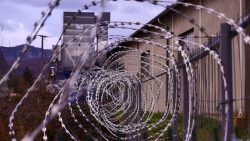Any North Korean who comes into contact with Christianity, even once, risks being sent to a political prison camp, which is equivalent to a life sentence.

Photo: Hédi Benyounes/ Unsplash
Newsroom (29/11/2024 15:24, Gaudium Press) North Korea, recognized as the most isolated country in the world, has one of the worst human rights records and is repeatedly documented as a country where religious groups suffer “extreme persecution”.
North Korea’s Songbun system, which mixes influences from traditional Confucianism with communist ideology, classifies citizens according to their loyalty to the state. In North Korea’s daily routine, songbun plays a key role in determining people’s fate. It affects everything from where someone can live to their chances of education and employment, perpetuating a cycle of advantages and disadvantages based on family history. Despite the small number of believers – around 0.38% of the population, which equates to just over 98,000 people – Christians are labeled as disloyal and even a threat to the government. For this reason, they live underground.
Many old churches are now used as gymnasiums or Kim II-sung research centers (where citizens have to study the works of North Korean leaders). North Korean Christians are forced to live their faith in secret, and North Korea ranks first on the World Persecution List 2024.
There was an increase in the repression of freedom of expression, thought, and access to information, strict control over the internal and external displacement of citizens, and the use of forced labor in extreme conditions in North Korea between July 2023 and May 2024. With the new laws that severely restrict access to foreign media and information, such as the Reactionary Thought and Culture Law, severe penalties are imposed, including life imprisonment and even the death penalty, for disseminating what the government considers “reactionary” content, such as films and music from South Korean culture and foreign news.
“The law is a threat to all citizens. It specifically targets Christians and bans the Bible and other religious materials,” says one person who prefers not to be identified for fear of reprisals.
North Koreans often use the long border with China to escape the country. If they manage to escape the strict police control, the fugitives seek illegal entry into a third country and seek asylum in the South Korean embassy. Those detained by the Chinese authorities are sent back to North Korea. According to Human Rights Watch, in April of this year, the Chinese government deported approximately 600 North Koreans. All those who had contact with Christians while outside the country were sent to internment camps for political prisoners, known for the harsh treatment of prisoners there. These political prison camps, in fact, amount to a life sentence without the possibility of parole.”
Illyong Ju, a refugee who lives in the US and works as a missionary to help North Koreans with the cause of religious freedom, regrets that “China, a member of the UN Human Rights Council, sympathizes with the murderous actions of the North Korean regime”, adding that “he has heard that they will be interrogated to tell, by force, about the remaining 1,000 people who have not yet been repatriated to North Korea”.
“They will undoubtedly be tortured in the camps and some will be executed. We must never take this fact lightly. The North Korean regime continues to commit acts tantamount to genocide against its people, and the Chinese government is turning a blind eye to this and tacitly supporting it.”
Compiled by Dominic Joseph